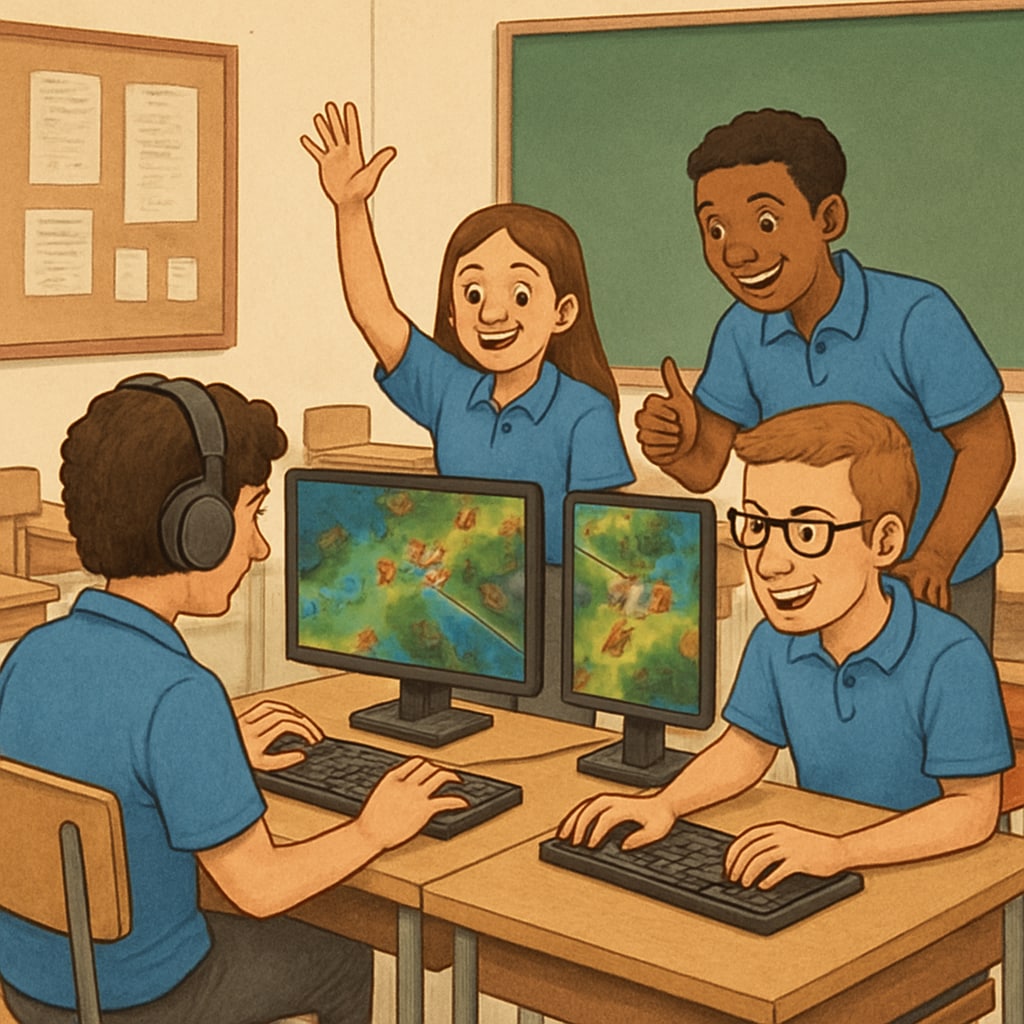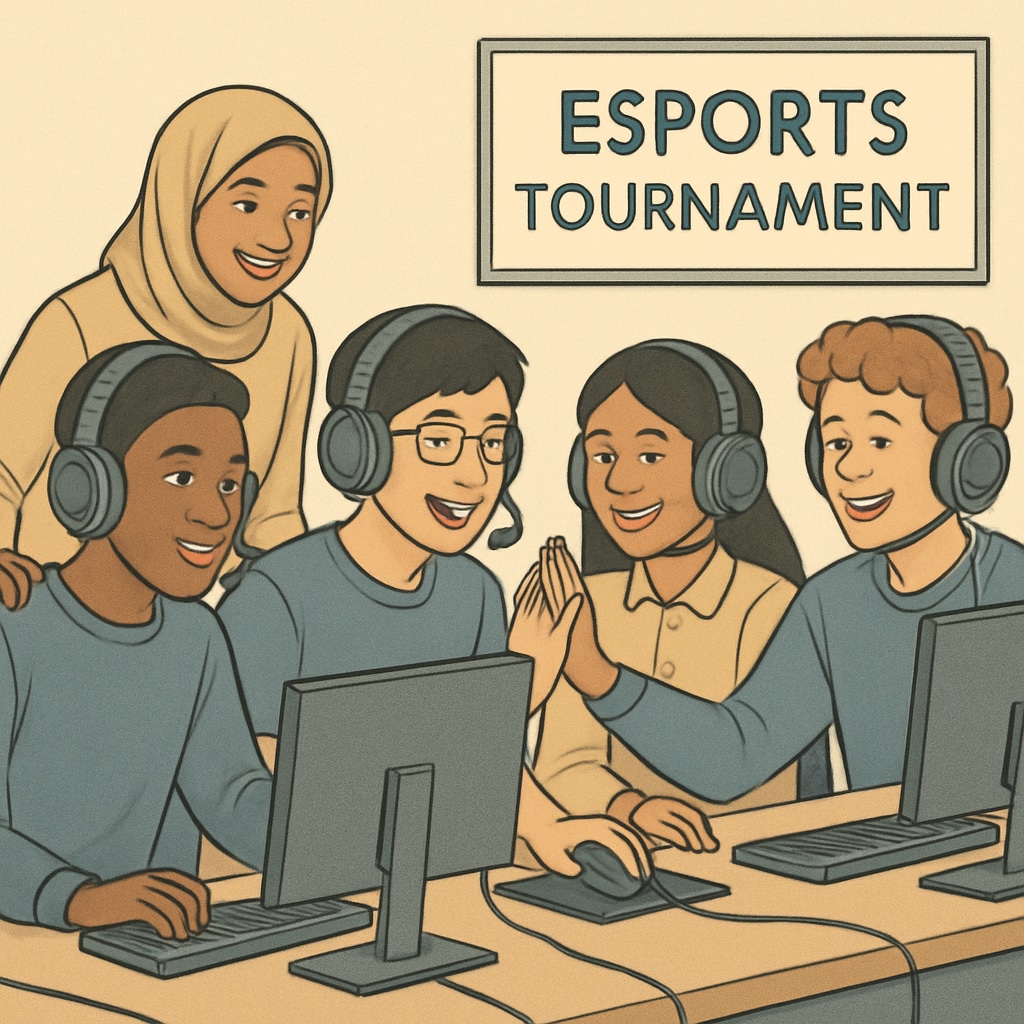Esports, gamification, and education are converging to redefine how students engage with academic content. The innovative partnership between GameClass and the North America Scholastic Esports Federation (NASEF) is at the forefront of this revolution. By integrating game-based learning into over 9,000 esports clubs worldwide, they are creating a dynamic ecosystem where students’ passion for gaming seamlessly connects with essential academic knowledge, offering a transformative approach to 21st-century education.
The Role of Esports in Modern Education
Esports, once viewed solely as entertainment, has evolved into a powerful educational tool. By combining the competitive and collaborative aspects of gaming with critical thinking, communication, and problem-solving skills, esports offers unique opportunities for student growth. Educators are now leveraging gamification (the application of game-like elements in learning) to make lessons more engaging and relatable.
For example, esports can foster STEM (Science, Technology, Engineering, and Mathematics) skills by introducing students to coding, data analysis, and even engineering principles through their favorite games. Moreover, students involved in esports programs often develop soft skills like teamwork, leadership, and strategic thinking, which are invaluable in both academic and professional settings.

GameClass and NASEF: Bridging Passion and Knowledge
The partnership between GameClass and NASEF exemplifies how esports can be seamlessly integrated into education. GameClass specializes in creating educational content tailored to the interests of young gamers, while NASEF provides a structured environment where esports clubs can thrive. Together, they are revolutionizing K12 learning by introducing game-based lessons that align with core academic standards.
For instance, students in these esports clubs might analyze game strategies to improve their performance, which can be linked to mathematics or economics. Similarly, designing custom game mods can teach coding and creative design. This model ensures that students are not just passively consuming content but actively engaging with it in meaningful ways.
In addition, this initiative emphasizes inclusivity. By reaching over 9,000 clubs worldwide, the program ensures that students from diverse backgrounds can access this innovative learning model. This global reach also fosters cross-cultural exchange, as students interact with peers from different countries and perspectives.

The Future of Game-Based Learning
The integration of esports into education signals a broader shift toward game-based learning. This approach has the potential to transform traditional classrooms into dynamic spaces where students are motivated to learn. By aligning educational content with students’ interests, educators can create a more personalized and effective learning experience.
Research supports the benefits of gamification in education. According to studies, students who engage in game-based learning demonstrate higher retention rates and improved problem-solving abilities. For educators, this means that incorporating esports and similar tools can bridge the gap between student engagement and academic performance.
Moreover, the skills developed through esports programs extend beyond the classroom. As industries increasingly value creativity, adaptability, and digital literacy, students with esports experience are better prepared for the demands of the modern workforce.
Challenges and Opportunities
Despite its potential, the integration of esports and education is not without challenges. Critics often raise concerns about screen time and the potential for distraction. However, programs like those developed by GameClass and NASEF address these issues by emphasizing balance, structure, and the educational value of gaming.
Another challenge lies in equipping schools with the necessary resources. Not all institutions have access to the technology or funding required to implement esports programs. Partnerships with organizations like NASEF can help bridge this gap by providing support and resources to schools in need.
Ultimately, the opportunities far outweigh the challenges. As more educators recognize the potential of esports and gamification, we can expect to see a growing number of innovative programs that transform the learning experience for students worldwide.
Conclusion: The collaboration between GameClass and NASEF is a testament to the transformative power of esports in education. By merging gaming with academics, they are preparing students for a future where critical thinking, collaboration, and creativity are paramount. As this innovative model continues to evolve, it holds the promise of reshaping education and unlocking new opportunities for learners everywhere.
For more information on the role of esports in education, visit Esports on Wikipedia or explore the concept of game-based learning at Gamification on Britannica.


